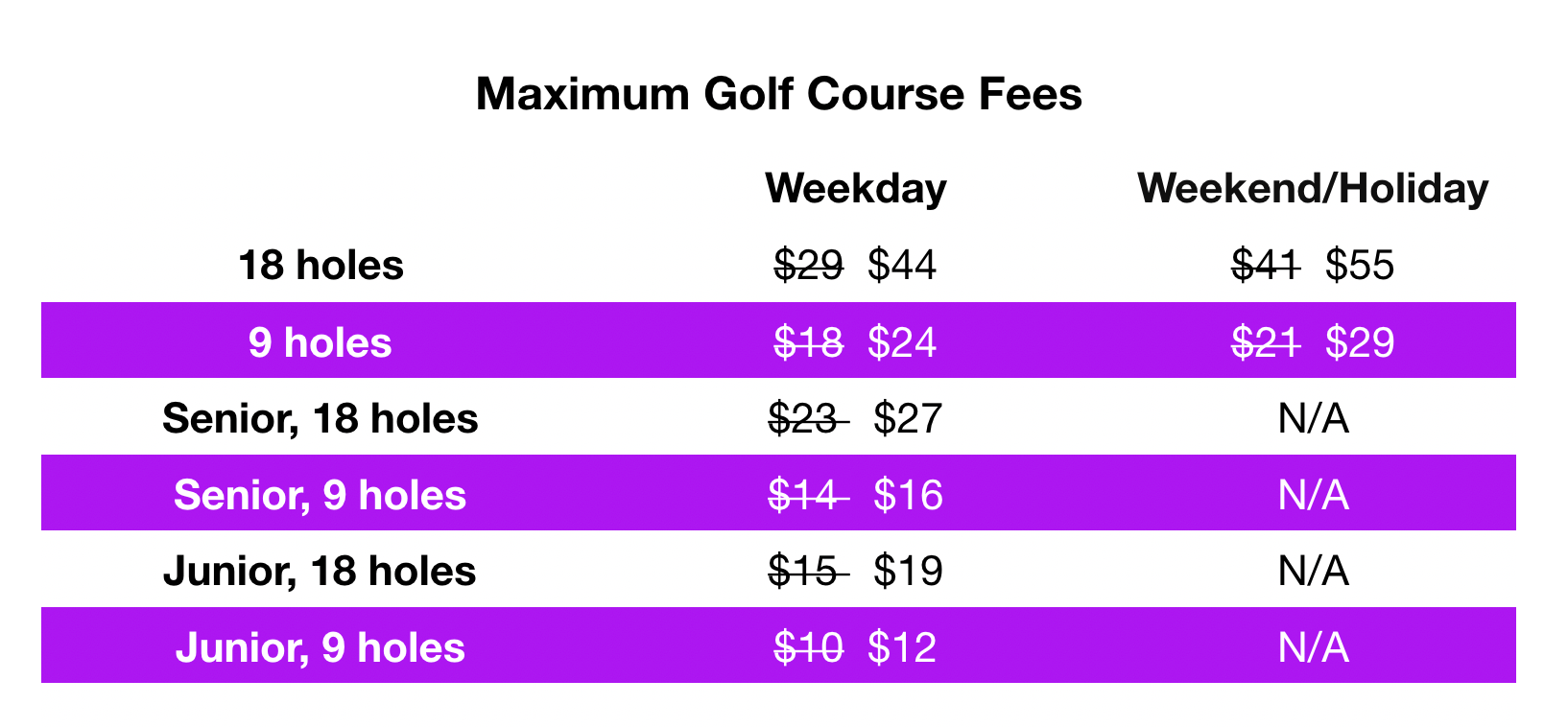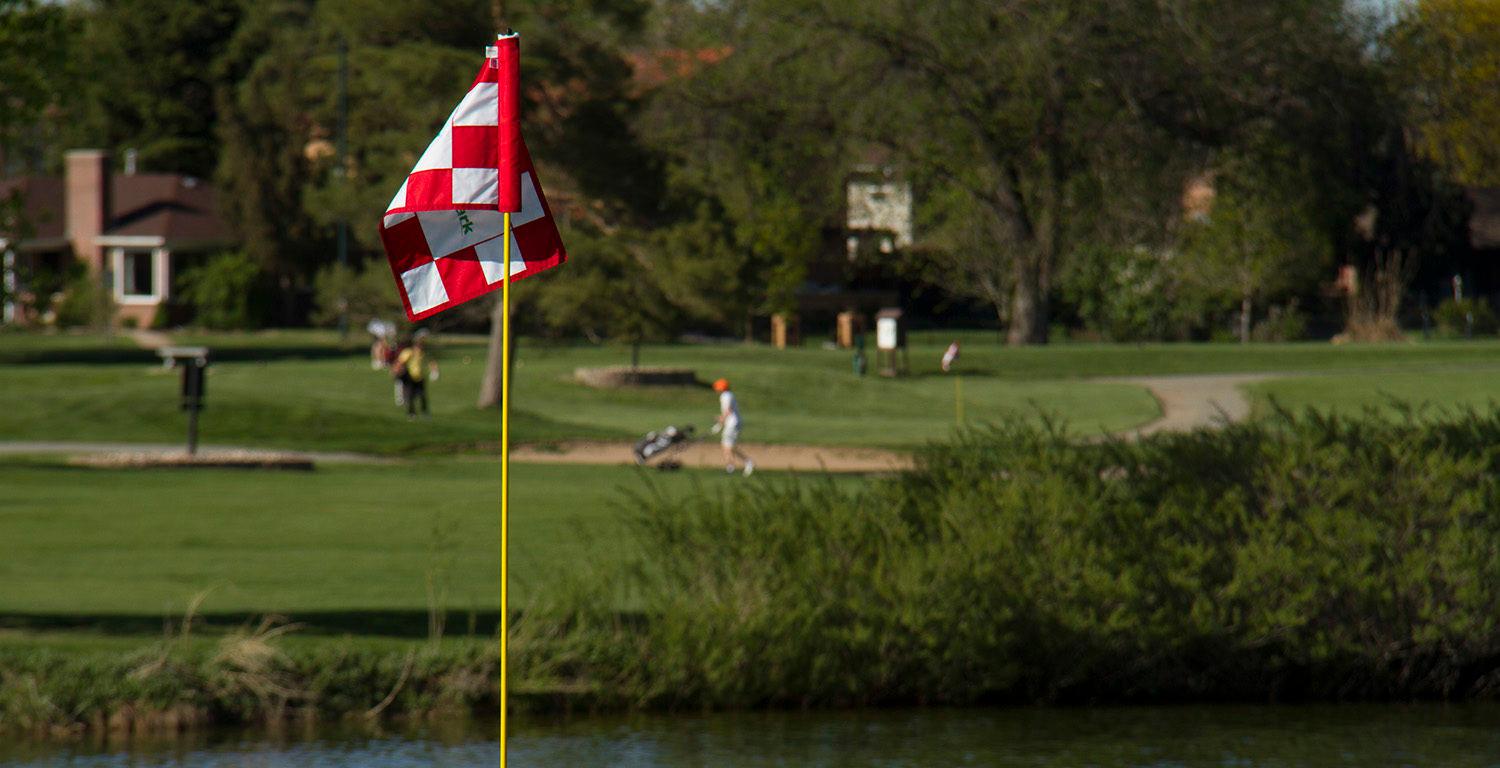At some point in the next two years, golfers will have to pay more to swing and putt at city-owned courses.
The Denver City Council passed new maximum fees Monday by a vote of 7 to 0, with council members Candi CdeBaca, Chris Hinds, Paul Kashmann, Debbie Ortega, Amanda Sandoval and Amanda Sawyer cast out to a virtual Zoom island where they could not vote.
Exactly when prices will rise and by how much is as unknowable as whether Bill shot a par or just jotted one down on the scorecard. While the city's golf division can now legally raise greens fees by as much as 51 percent, the market will determine the actual cost, said Scott Rethlake, the director of golf for Denver Parks and Recreation. In other words, the courses will charge what people think the courses are worth.
"Really, the customers set the fee as they do with any business," Rethlake told Denverite. "If I go to council and ask for a $50 increase and nobody pays it, then that wouldn't make any sense because we wouldn't make the money we need to operate."
Here's what's possible:

Rethlake believes $47 for 18 holes on the weekend and $36 for 18 holes on a weekday are the sweet spots -- what the market will let Denver charge given its competition. If those rates stand, Denver's courses would remain at the bottom half of the local market, according to a Parks & Rec analysis that compared Denver's prices with 31 other courses.
Season passes could cost up to $750, paralleling Ikon and Epic ski resort passes. But few people have them since they were taken off the market in 2008 with passholders grandfathered in. Only 43 people even have the ability to re-up, Rethlake said.
Fee hikes will also help fund youth golf programs.
Ratcheting up greens fees undermines the public's ability to play golf, a particularly expensive sport, said City Councilwoman Candi CdeBaca.
"We know that these golf enterprises, specifically City Park Golf Course in my district, is one of the few affordable golf courses for people who enjoy the sport and don't have the luxury of expendable income at the levels most golf courses require," CdeBaca said last week. "So at a time like this, especially as the new golf course opens, we want to encourage as many people to experience it as possible, and we limit those possibilities by increasing these fees."
CdeBaca voted against publishing the bill last Monday. She said basing prices on demand "eliminates low-income people from utilizing our golf courses," especially on the weekend.
The city's golf courses need to charge more to keep up with higher operations costs like labor, fuel and fertilizer, Rethlake said. Unlike a rec center, for example, taxpayers don't technically subsidize city-owned golf courses. The government runs them as businesses -- like Denver International Airport -- and all profits are reinvested into the enterprise.
The COVID-19 pandemic is causing more uncertainty. The respiratory disease caused by a new coronavirus has shut down city-owned courses indefinitely. CdeBaca says the virus makes it an even worse time to raise prices.
Rethlake will ultimately defer to the market, which could very well keep prices low.
"I don't know that we anticipate things changing very much until things get to at least semi-normal," he said, "and who knows when that's gonna be."
The increase isn't enough to drive Don Holloman away from the courses.
Holloman plays Denver courses all the time with his buddies -- or at least he used to before the courses closed. Then again, he's older than 62 and technically a senior. He's also retired and plays on the weekdays, so he'll see a maximum bump of $4 in greens fees.
"We'd rather not pay it but we would still play," he said. "That wouldn't keep us away. Truth is, the Denver courses are a deal."
Rethlakes said no fees will change until May 1 at the earliest.













